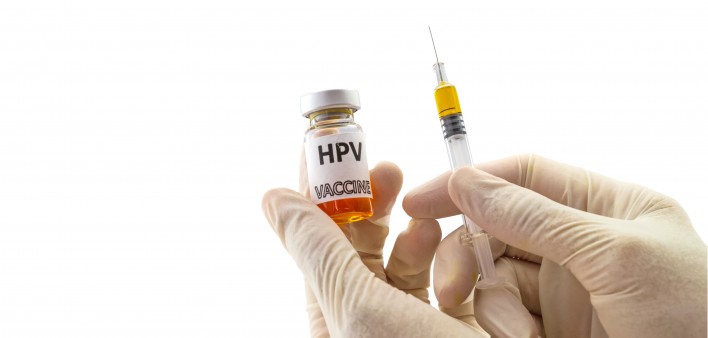Gardasil, the vaccination that protects against four strains of human papillomavirus (HPV) that are associated with various forms of cancer, including anal cancer, is not effective among people living with HIV age 27 and older, Healio reports. However, a recent trial yielded evidence suggesting that the vaccine may protect against oral HPV infections in this population.
According to the study authors, these findings stress the importance of vaccinating boys and girls against HPV before they become sexually active. There is now an approved vaccine, Gardasil-9, that protects against nine strains of the virus. (At the time of this study, the Food and Drug Administration had approved only the more limited Gardasil vaccine.)
Publishing their findings in Clinical Infectious Diseases, researchers conducted a Phase III double-blind, randomized controlled trial of HIV-positive individuals age 27 and older who were participating in the Phase III ACTG A5298 study.
The participants were randomized to receive Gardasil or a placebo injection, with a second injection after eight weeks and a third injection after 24 weeks.
During the study’s follow-up, there were no statistically significantly different rates between the two study groups with regard to persistent anal HPV infections or high-grade squamous intraepithelial lesions (bHSIL, a precursor to anal cancer). This meant that any actual differences in these rates may have been the result of chance and that the vaccine was not effective in preventing either of these outcomes.
The study was supposed to run for three years of follow-up, but its data and safety monitoring board recommended the investigators terminate it early because of the apparent futility of the trial.
However, when the researchers excluded from their analysis those who had a single oral HPV infection at their final study visit, they found that the vaccine reduced the risk of persistent oral HPV infection by 88 percent. This finding, they stated in their conclusion, “should be confirmed in future studies.”
To read the Healio article, click here.
To read the study abstract, click here.







Comments
Comments